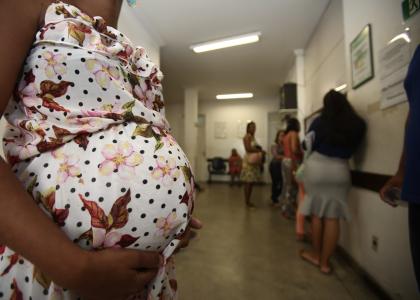Physical Health
Remote Patient Monitoring of Chronic Disease in Community Health Centers (REDUCE)

The goal of this study is to evaluate the biomedical effects of these RPM interventions, and to gain insights into barriers and facilitators to implementation and adoption of the programs. Our results will inform efforts to ensure that patients in community health centers can benefit from digital RPM interventions and will lay the foundation for large-scale implementation of such interventions.
Transcending COVID-19 Barriers to Pain Care in Rural America: Pragmatic Comparative Effectiveness Trial of Evidence-Based, On-Demand, Digital Behavioral Treatments For Chronic Pain

For people from the rural America with chronic diseases, the pandemic can not only worsen pain, but also it can trigger anxiety, depression, trouble sleeping, and substance use. One way doctors and health systems are reaching out is by video visits, where patients and their providers communicate online via the Internet.
Optimizing Access, Engagement and Assessment to Elucidate Prenatal Influences on Neurodevelopment: The Brains Begin Before Birth (B4) Midwest Consortium

This study enrolls pregnant and postpartum women into a multi-wave study to assess medical, economic, psychosocial and substance use risk across pregnancy and the perinatal period, studying associations of these factors to infant neurobehavioral development during the first year of life.
Planning for the HEALthy Early Development Study

This project will build on an existing national pregnancy cohort study of women with a wide range of underlying health conditions to address COVID-19 symptoms, testing and antibody status, as well as the behaviors of participants during the pandemic.
A New Database to Measure the Association Between Income, Race, and Mortality: Inequality in Longevity During and Beyond the COVID-19 Pandemic Disparities

This project will build a public database of mortality rates incorporating socioeconomic and demographic variables across the U.S. population. Researchers will be able to analyze the sources of disparate impacts of COVID-19 on mortality across subgroups, with the aim of understanding how to reduce health inequality.
CV Wizard: Does a Prioritized, Point-of-Care Clinical Decision Support Tool Improve Guideline-Based CVD Risk Factor Control in Safety Net Clinics?

This project will assess virtual care's impact on cardiovascular disease risk management in community health centers and the role of patient-facing clinical decision support tools during the pandemic. Specifically, it investigates how the shift to virtual care (VC) affects cardiovascular disease (CVD) risk management; the shift’s impact on existing health disparities in vulnerable populations; and whether CVD care in VC can be enhanced by the use of patient-centered clinical decision support tools.
Improving the Collaborative Health of Minority COVID-19 Survivor & Carepartner Dyads Through Interventions Targeting Social and Structural Health Inequities

This study tests the efficacy of a telehealth-enhanced, RN-Community Health Worker delivered dyad intervention, ICINGS FAM, on quality of life, and health-related outcomes in vulnerable African American adults with pre-existing chronic illness and their informal care partners.
COVID-19, Vaccinations and School / Community Resources: Children's Longitudinal Health and Education Outcomes Using Linked Administrative Data

This research will examine how significant disruptions to children’s health, education and overall well-being during the COVID-19 pandemic created lasting influence on health, development and social trajectories, and the risk for long-term health outcomes.
Dulce Digital-COVID Aware (DD-CA) Discharge Texting Platform for US/Mexico Border Hispanics With Diabetes + COVID-19

This project will assess the effect of providing an enhanced digital texting intervention-Dulce Digital-COVID Aware (DD-CA) to Hispanic patients with type 2 diabetes upon discharge from recent hospitalization. Key outcomes will assess the impact of DD-CA on hospital readmissions at 30 and 90 days post-discharge, glucose control, and patient reported outcomes at 90 days post-discharge, while also assessing COVID status.
COVID-19 Mitigation Efforts and Disparities in Access to Routine Preventive Care and Chronic Disease Management

There is a large and growing literature quantifying disparities in outcomes related to COVID-19, but less is known about how the pandemic has affected access to care as well as associated health outcomes among vulnerable populations.